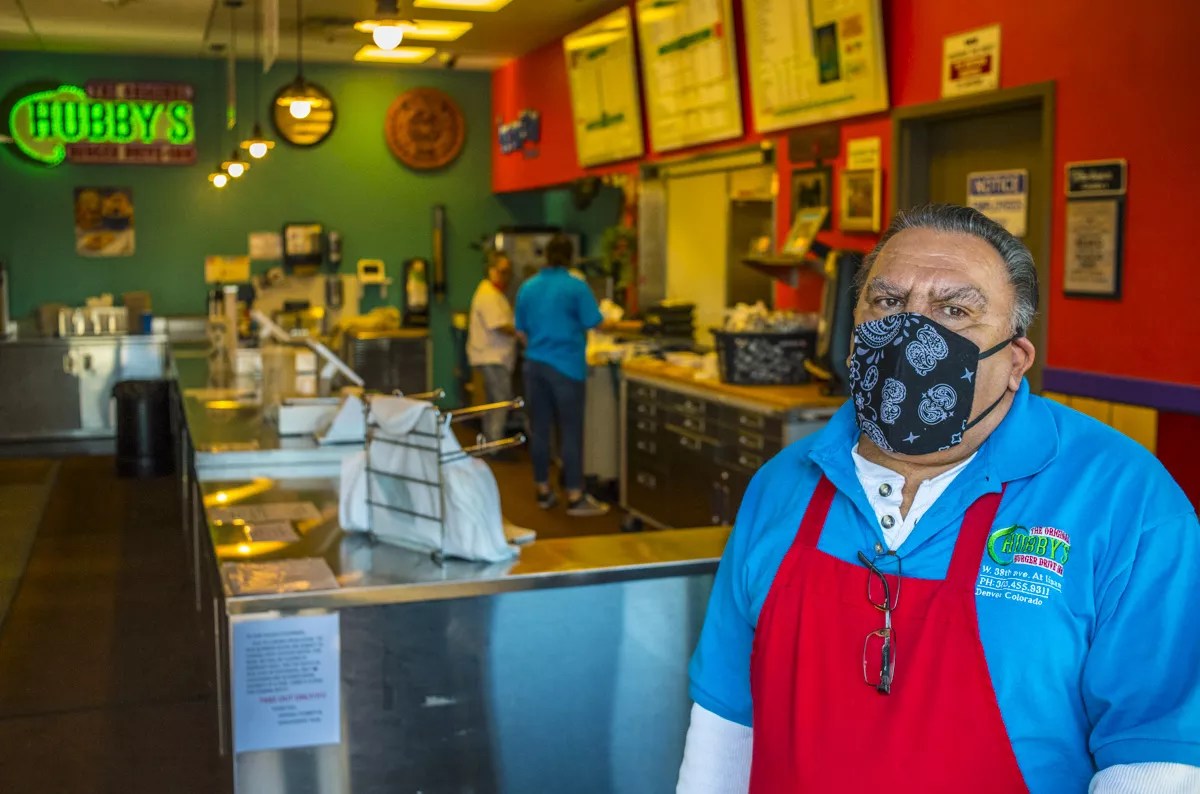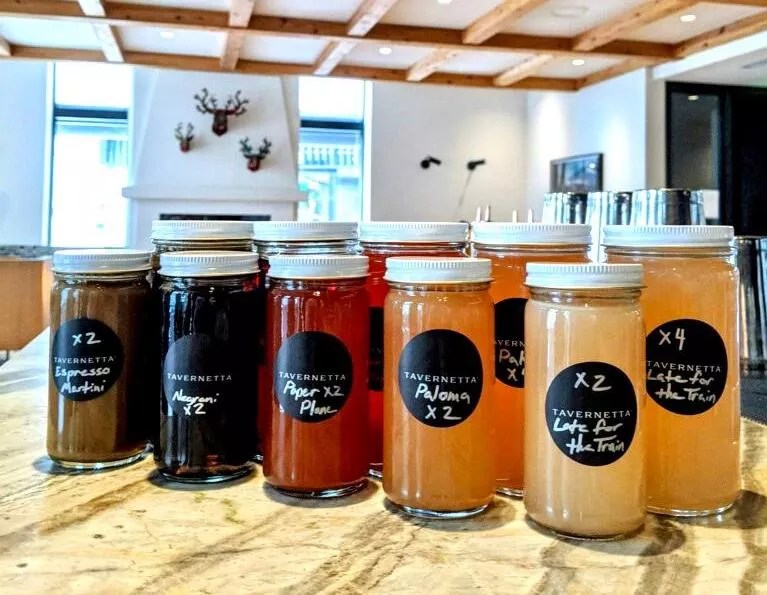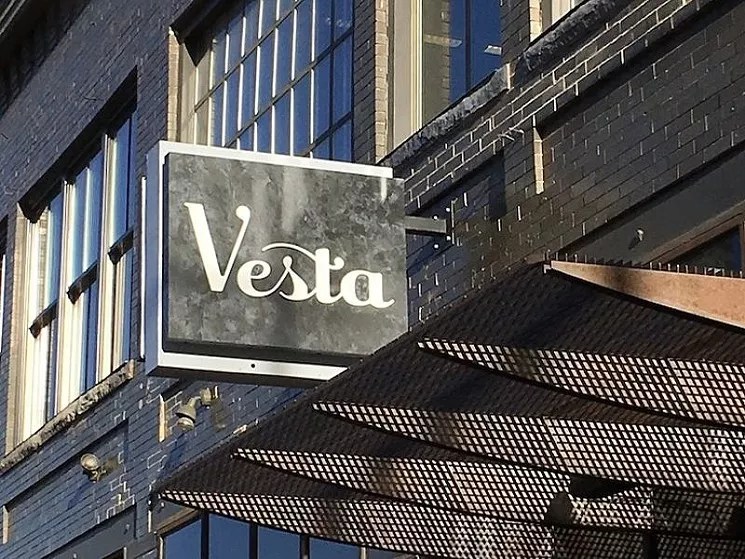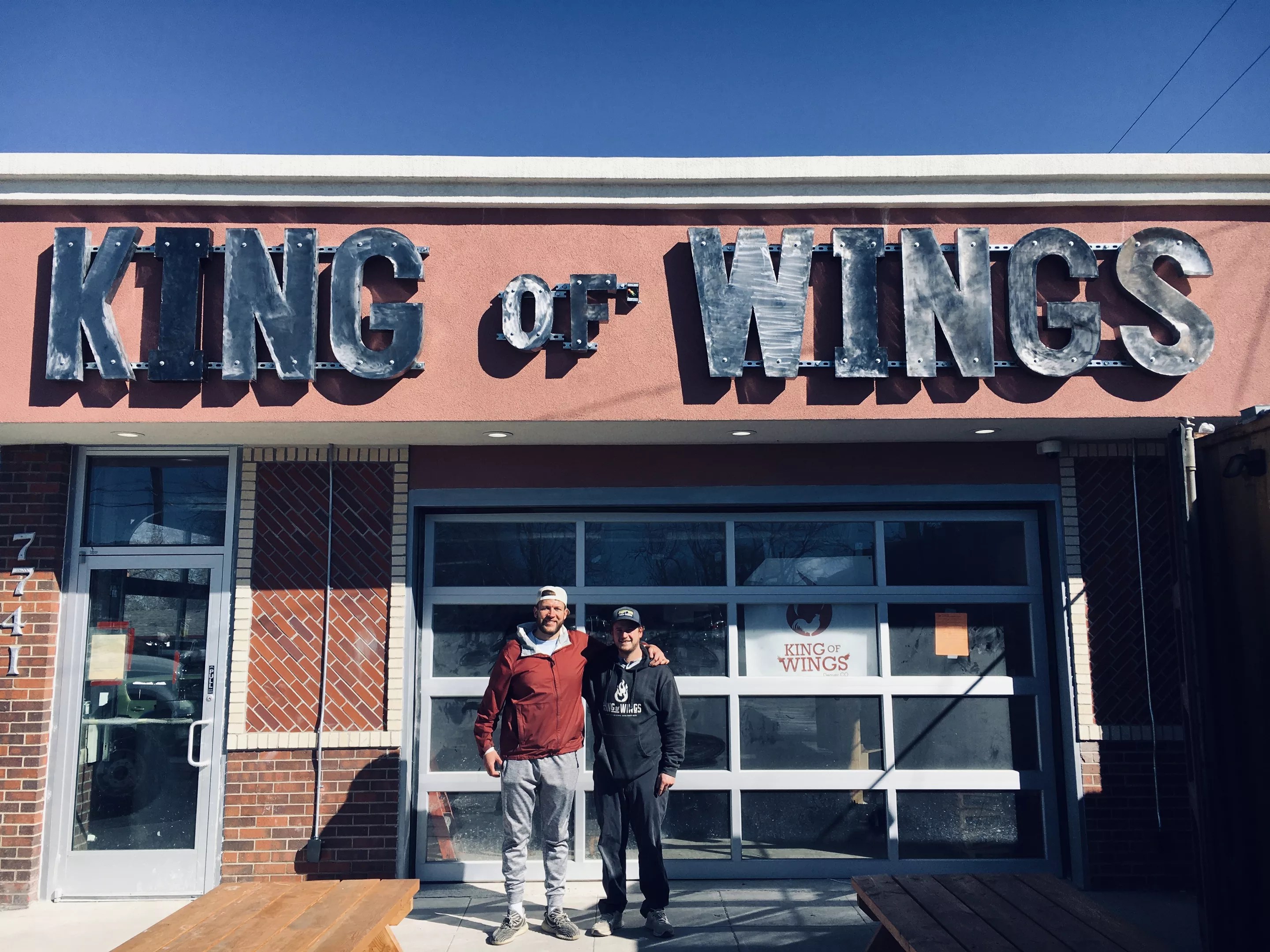
Evan Sem

Audio By Carbonatix
What restaurant and food news could possibly overshadow the disaster that was the 2020 coronavirus pandemic? Beyond losing jobs and revenue, restaurants also lost the ability to do what they do best: bring us all together as a community.
But there were things other than COVID that made news on the Denver dining scene this year, though the virus had a way of infecting these developments, too.
Here are the ten biggest food and drink stories in Denver in 2020:
The First COVID Dining Room Lockdown
In early March, the seriousness of the looming pandemic became more obvious as COVID cases, hospitalizations and deaths began to mount. Some restaurants began closing to protect their employees and customers even before it was mandated, but on March 17, Governor Jared Polis ordered every bar and restaurant in Colorado to suspend in-house dining, with only takeout and delivery sales allowed. That model continued until May 26, when businesses were allowed to reopen at 50 percent capacity.

Tavernetta has been packaging a rainbow of cocktail choices for takeout customer for most of 2020.
Tavernetta
Liquor To Go
In a pandemic-inspired move that may stick around long after we’ve dropped our masks, in March Governor Polis issued an executive order allowing takeout and delivery of alcoholic beverages from bars and restaurants. That order was converted into a state law by the Colorado General Assembly in June, giving bars and restaurants the ability to sell booze to go through July 2021. Don’t be surprised, though, if that ability is made permanent. Now, if Polis would also make good on his suggestion to extend closing time to 4 a.m….
The Second COVID Dining Room Lockdown
Restaurant business continued at 50 percent capacity from June through October, with many establishments expanding their patios to allow more seating outside. As fall set in, though, COVID cases began to rise again, and capacity was reduced to 25 percent at the end of October. And then on November 20, Colorado announced new Level Red restrictions, once again closing dining rooms in much of the state. This time around, restaurants were allowed to offer patio seating, and state and local programs were put in place to help businesses pay for new covered seating configurations. Tents, greenhouses, igloos and other types of heated, single-group shelters began to pop up all over Denver, but dozens of eateries chose to shut down for the winter rather than incur additional expenses.

Vesta closed after more than twenty years in LoDo.
Courtesy of Josh Wolkon
Denver Favorites Close
The economic impact of the pandemic hit Denver restaurants big and small, and many closed for good – though in some cases, COVID-based business restrictions were only part of the equation. After almost 25 years in LoDo, Vesta never reopened after the initial shutdown; owner Josh Wolkon said that he’d already been planning to shutter his flagship restaurant (he also runs Ace Eat Serve and the two locations of Steuben’s) when its lease expired in 2021, but the pandemic moved up the timetable. A similar story unfolded at Racines: Owners Lee Goodfriend and David Racine had already planned to sell the building and retire in January 2021, but wanted to keep the restaurant going until then; instead, they decided to call it quits early, never reopening after March. Other eateries that exited the scene included 12@Madison, 20th Street Cafe, Zaidy’s Deli, The Market, Old Major, Euclid Hall, Fresh Fish Company, The Palm Steakhouse, Zolo Grill, and all three of Peggy and Joe Romano’s Boulder restaurants – Brasserie Ten Ten, The Med and Via Perla.
Restaurants See Little Help From the Federal Government
The restaurant industry was hoping for relief funds from the federal government because of the sheer number of restaurant workers put out of jobs and the loss of income from capacity restrictions. While early help came in the form of Economic Injury Disaster and Paycheck Protection Program loans, much of the money was gobbled up by large chains and other businesses outside the hospitality industry, and the loan stipulations proved less than helpful. For example, PPP loans required that all the money be spent within eight weeks, primarily on payroll – during a time when most restaurants were under lockdown and maintaining minimal staffs. A restaurant-specific relief bill was proposed, and organizations like the Colorado Restaurant Association and EatDenver worked with the national Independent Restaurant Coalition to get it passed, but nothing came of their efforts. Meanwhile, partisan squabbles in Washington, D.C., and the presidential election postponed the passage of another stimulus package that at least contained restaurant-specific assistance. It finally was approved on December 21, but President Trump waited until December 28 to sign it, costing millions of unemployed workers a week’s worth of emergency payments.
Wildfires and Bad Weather Impact Food Producers
The coronavirus pandemic has been the overarching story of 2020, but a drought and resulting wildfires throughout the state also created chaos and economic difficulties for Colorado farmers and ranchers. Drought was already making farming and ranching difficult, and then the fires made things worse; farmers had to evacuate animals and watch pastures and barns go up in flames as the East Troublesome, Pine Gulch, Cameron Peak and CalWood fires burned. While many Coloradans assumed that the October 25 freeze and snowstorm would help keep the fires under control, the moisture did little to contain the blazes. Meanwhile, unusually cold temperatures in Mesa, Delta and Montrose counties severely damaged the grape crops in the Grand Valley American Viticultural Area, where many of Colorado’s vineyards are located, according to the Colorado Wine Board. After the damage to the industry was assessed, Governor Jared Polis requested a disaster declaration from the USDA to provide relief funds.

Larimer Square has become more pedestrian-friendly, a change that we hope its new owners will embrace.
Courtesy of Visit Denver
Larimer Square Sells
The stretch of Larimer Street between 14th and 15th streets – once part of the city’s skid row – was saved by businesswoman and preservationist Dana Crawford in the 1960s; in 1971, it became Denver’s first historic district. Crawford sold it to the Hahn Company in 1986, and since 1993 it has been in the hands of Jeff Hermanson, who helped make the block one of the hottest drinking and dining zones in Denver. But Hermanson sold Larimer Square, comprising 25 properties and 250,000 square feet of space, to North Carolina’s Asana Partners in December. What will the future bring? The buildings are protected by historic designations, at least, but the many restaurants and bars they hold are not.
Punch Bowl Social Empire Crumbles
Punch Bowl Social was founded by restaurateur Robert Thompson in 2012, when the first of his restaurant-nightclub-entertainment centers opened at 65 Broadway, complete with a bowling alley, a video-game arcade and a packed house every weekend night in the suddenly trendy Baker neighborhood. The company grew fast, adding nearly twenty PBS outposts all over the country, including the ambitious overhaul of the former Stapleton International Airport control tower building. But the pandemic brought all of that to a screeching halt, as Punch Bowl Social was built for socializing, not social distancing, and the Central Park (formerly Stapleton) outpost closed permanently in June. And with no revenue to support its loans, the company went into foreclosure in late March as one of its primary investors, Cracker Barrel Old Country Store, pulled out. Thompson resigned as CEO in August, and Punch Bowl Social filed for bankruptcy in late December. The original Denver PBS managed to reopen at partial capacity over the summer, but closed again on November 20 as indoor dining became off limits when Denver hit Level Red COVID status. Thompson has moved on to other plans, and his creation remains shuttered.
In-N-Out Burger Opens Its First Colorado Locations
After decades of rumors, two In-N-Out Burger outposts finally opened in Colorado. At the Aurora location, at 14150 East Alameda Avenue, there were fights in the parking lot, the police reported twelve-hour waits in the drive-thru line, and traffic was rerouted on major Aurora thoroughfares – all because burger fans wanted to be among the first to go “animal style.” The scene was similar in Colorado Springs, although with no reported violence. That was on November 20 – an irony not lost on food fans, since metro Denver restaurants were all required to close their dining rooms that day under Level Red rules. They complained, loudly, that the same kind of enthusiasm (and media attention) wasn’t lavished on local eateries. To top things off, a major COVID-19 outbreak swept through the two burger joints, with more than eighty confirmed cases among In-N-Out’s Colorado employees.

Eddie Renshaw (left) and Evan Pierce turned King of Wings from a food truck to a brick-and-mortar restaurant at the beginning of the pandemic.
Mark Antonation
New Restaurants Keep Opening Despite the Odds
Right before March 17 – when restaurants were ordered to end everything but takeout and delivery service – we spoke to Edward Renshaw and Evan Pierce, who were getting ready to open King of Wings in Wheat Ridge; by a stroke of luck and circumstance, they’d decided to build their kitchen in a shipping container on the restaurant’s patio. King of Wings didn’t open until June 20 because the pandemic delayed final inspections, but Renshaw says business has been surprisingly good since then, even as restrictions have tightened. “We’re just grateful for the success we’ve had and for our customers, who have kept us busy with to-go orders,” he notes.
The combination of takeout-friendly food and a setup built for easy curbside pick-up helped King of Wings, but across town, Brasserie Brixton had a tougher time building up business as a modern French bistro serving innovative fare. “We can’t even receive free hand sanitizer, even though we are a fully operational business that is currently under an occupancy and curfew restriction, because we opened in the middle of the pandemic, not before,” co-owner Justin Morse says. But despite the lack of relief funds, Brasserie Brixton was able to pivot, installing a wood-fired oven and launching delivery-focused Le Brix Pizza & Wine on December 16 – and sold out of pizzas on reopening night.
All over town, restaurants continue to open, adapting their plans to accommodate ever-changing COVID-based rules and restrictions. In fact, we’ve tallied more than 100 openings in the past nine months, including Wildflower, The Fifth String, Etc. Eatery, Manzo Lobster & Seafood Bar, The Ginger Pig, House of Bread and two food halls: Junction Food & Drink and Avanti Boulder.